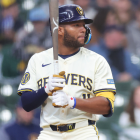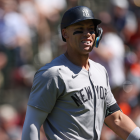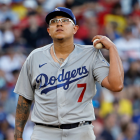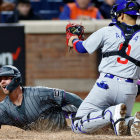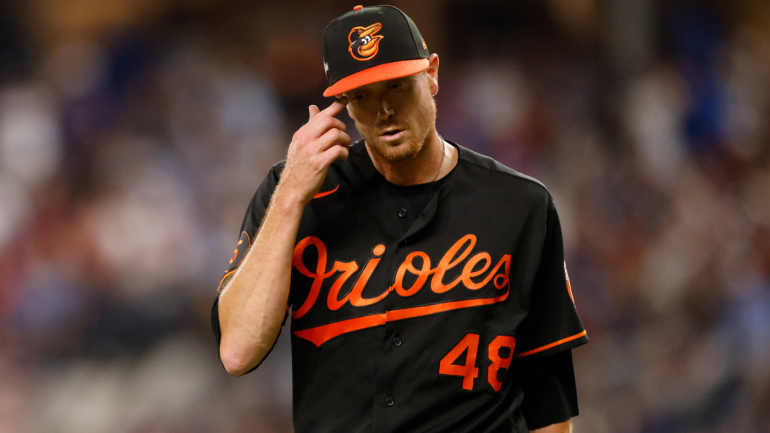
Until the season-ending pounding they took in Texas on Tuesday night in Game 3 of the ALDS, these Orioles were strangers to being swept. Buoyed by an impressive young core, the Orioles weren't swept during the entire sprawl of the 2023 regular season. Indeed, they haven't been swept in a regular season series of at least two games since the Tigers broomed them in a three-game set way back yonder on May 13-15, 2022.
That's a span of 91 straight regular-season series without being swept. That's impressive stuff, even by the standards of a 101-win team such as the 2023 O's model.
Some may note that the sweep in Detroit predates the major-league debut of franchise catcher Adley Rutschman, who is in so many ways the face of the Orioles rebuild and their recent successes. It's now been 90 consecutive regular-season series without a sweep for Rutschman. That makes his the second-longest "sweepless" streak to start a career in MLB history.
There's now an essential qualifier appended to all those Orioles no-sweep streak observations, which you may have noticed in the phrasing above: regular season. Baltimore's 2023 season is over before the team could register a single playoff win. The ALDS sweep at the hands of the Rangers was already surprising enough given the Orioles' standing as the top seed in the AL. It's more surprising still in light of how long it's been since they've been swept.
So what's to blame for the sweep that finally happened when the stakes were the highest? It's mostly attributable to what, well, pretty much everyone said would be the Orioles' fatal flaw: the rotation.
Coming off a 2022 season in which a buyer's deadline probably would've yielded Baltimore a playoff berth, the O's did not much of anything to address an obviously lacking rotation. They signed Kyle Gibson and called it a winter. Leading up to the trade deadline and still faced with rotation shortcomings, they undertook the half-measure of dealing for Jack Flaherty. Both Gibson and Flaherty were in the bullpen for this recently completed postseason series.
As for the starters who did start – Kyle Bradish, Grayson Rodriguez and Dean Kremer – they combined for a grisly 14.63 ERA in this ALDS. The Rangers have a powerhouse offense, and they very acutely reminded Baltimore starters of those capacities. Whether it's owner John Angelos' unwillingness to spend at levels even remotely befitting a World Series contender (they're 25th in player payroll) or GM Mike Elias' prospect-hugging or some combination of both, it's the decision-makers who are to blame for this embarrassing exit because they're the ones who knowingly neglected the rotation that was their undoing against Texas.
The counterexample for them was just across the diamond. The Rangers signed Jacob deGrom and Game 3 winner Nathan Eovaldi. When they got hurt, Texas dealt for Jordan Montgomery and Max Scherzer. That's getting buy-in from ownership and the front office, and that's what Baltimore lacks.
There's no guarantee that different behavior over the winter and at the deadline would've changed this outcome, but that's the hazard of operating boldly in a sport like baseball, which has so much built-in randomness. Sometimes it doesn't go your way. That, however, is at least more consoling than going in half-cocked and getting decimated and, ahem, swept.
Angelos and Elias owed their fans and those young players like Rutschman and Rodriguez and Gunnar Henderson and soon enough Jackson Holliday more than this. Maybe it's a lesson they'll have time to reflect upon and learn over the rest of October. The club's future remains very bright, but the owner and lead decision-maker must do their part to maximize the chances of a championship in the years to come. They didn't do that this time around.















